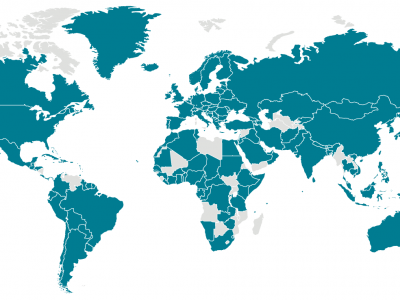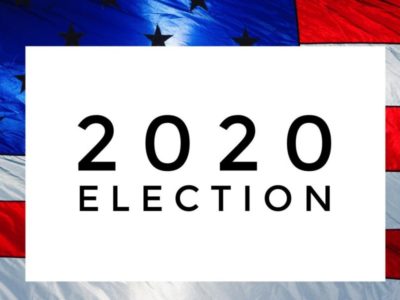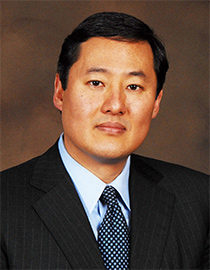Does the Constitution Exempt Churches from Social Distancing?
Short answer: "No." And it might even be unconstitutional for states to grant such exemptions.
Most religious groups have willingly complied with public health limits on large gatherings. But not all. These claims of religious exemption, and some states' responses to them, raise important constitutional issues. There have been a couple of cases in the spotlight. Rodney Howard-Browne is a Florida preacher who prayed over Trump in the Oval Office in 2017. He refused to stop religious service and vowed not to stop services or discouraging his flock from shak...
CONTINUE READINGResponses to COVID-19 : An International Comparison.
What can we learn from other countries’ efforts to control the virus?
Countries around the world have taken different pathways in responding to coronavirus. We can learn from their experiences-- sometimes what to avoid, sometimes what we might do in the next phase of disease response. We should be starting to get a sense of what works, although a lot of rigorous study will be necessary to draw firm conclusions. Here’s a quick survey, limited to democratic countries because of their comparability to the United States. Britain - A Po...
CONTINUE READINGThe SAFE Rule: Sham Acronyms Foul Environment
Some Possible Replacement Phrases for the Trump Administration Rollback
In the original proposal to eviscerate national car standards to reduce carbon pollution, the Trump Administration used a made-up justification: lower standards would lead to safer cars. Hence the Administration originally named the rollback of the standards the "SAFE" Rule. SAFE stands for "Safer Affordable Fuel Efficient" Vehicle Rule. But the justification was a sham. Even though administration officials claimed that "the rule promises to save lives," the...
CONTINUE READINGDeferred Planetary Maintenance
It’s easy to put off long-term problems when there’s a crisis. Much too easy, actually.
Long-term problems get short shrift in a crisis. That's true of infrastructure repair; it's also true of climate change. Like deferred maintenance, climate change just gets bigger the longer it's put off. I often see the fruits of deferred maintenance on the Berkeley campus. Building conditions are a huge problem at Berkeley. Whenever there’s a crisis, maintenance gets deferred until. . . well, until it’s deferred again, during the next crisis. So too for the pl...
CONTINUE READINGSeven Months to Election Day (and Counting)
You may have forgotten, but the clock is still ticking.
You may not have been focused on this, but there will be a Presidential election seven months from today. The stakes are enormous for environmental law. In fact, those stakes can be measured in megatons of carbon. There's no question about Trump's approach to environmental regulation. As of the beginning of this year, ninety-five environmental rollbacks had been launched according to one count. Of those, fifty-eight had been completed. Trump’s campaign websit...
CONTINUE READINGIs Saving Lives Unconstitutional? A Response to John Yoo
Takings law is complicated, but the answer to this question is clear. The answer is no.
Like others on the extreme right, the Hoover Institution is campaigning against “stay at home” orders because they cost too much money. Regrettably, the most recent argument to this effect on their website is by my colleague John Yoo. He argues that the Constitution requires states to compensate business owners for their losses. That’s simply wrong. In the blog post, Yoo and coauthor Harmeet Dhillon argue that shutting down businesses is a “taking” of th...
CONTINUE READINGInterpreting Models of Coronavirus Spread
Models are crucial to making policy decisions during the epidemic, but you have to know how to use them.
This post works through an exercise in how to use and interpret models of disease spread. Here are the takeaways for policy analysis: You need to know about a model's sensitivity. Particularly in settings where the specific numbers really matter, such as forecasting how many hospital beds will be needed, it's important to take into account the range of possibilities. You need to understand the assumptions in the model. What is the model assuming about the...
CONTINUE READINGA Tearful Trump Rues Climate Denial
Greta Thurnberg Given Free Mar-a-Lago Lifetime Membership
Tears ran down his face as Trump paused in the middle of an unscheduled coronavirus briefing late last night. He turned to reporters saying, “Climate change. It’s a disaster. Who knew? It's a real disaster. I alone can fix this!” Stunned White House aides attributed the comments to a telephone conversation that evening between Trump and Tiger Woods. Woods apparently informed Trump about the impact of climate change on golf courses. fThe President had been shocke...
CONTINUE READINGDeciphering the SAFE Rule
When the agencies say x, they mean y
I'm one of many environmental lawyers this morning poring over the just-released final rule rolling back federal fuel economy and climate emission standards for cars. I'm finding it helpful to create a key, of sorts, to the Orwellian language I'm encountering. Here you go! Happy reading, everyone. What it says What it means “The final standards will [] result[] in energy conservation that helps address environmental conc...
CONTINUE READINGThe Epstein Affair
A prominent law prof got COVID-19 numbers disastrously wrong. Then things got worse.
The New Yorker recently published a devastating interview with law professor Richard Epstein. He had attracted their notice by publishing two columns on the Hoover Institution website, the first projecting a total of 500 U.S. deaths from the coronavirus (later raised to 5000), and the second defending his work. I don’t see any need to add to the chorus of disapproval, but I do want to ask what lessons we can learn from this episode. How did he go so disastrously a...
CONTINUE READING










